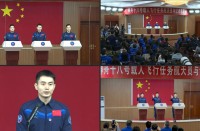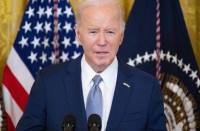
HAVANA, Cuba (Reuters) — Cuba and Russia signed new agreements in areas such as transport, technology and energy on Thursday (December 8) after the conclusion of the fourteenth meeting of its Intergovernmental Commission in Havana.
The meeting was led by Russian Vice-President Dmitri Rogozin and Ricardo Cabrisas Ruiz, Cuba’s Vice President of the Council of Ministers, who co-chairs the bilateral commission for economic-trade and scientific-technical cooperation.
In total, Moscow and Havana signed seven legal instruments for the period 2016-2020, mostly a memoranda of understanding in areas such as technology, air transport, drug control, and rebuilding and modernisation of generation blocks.
In addition, an agreement was signed for Russia to supply motor cars to the island as well as a bank credit agreement.
The visit comes just days after the death of Fidel Castro, who famously declared Cuba socialist and allied himself with the former Soviet Union after Cuba’s military crushed a CIA-backed invasion by Cuban exiles at the Bay of Pigs in 1961.
Rogozin travelled to Havana as part of a tour of Latin America, which has already taken him to Venezuela and Nicaragua.
He is accompanied by a delegation of officials from Russia’s ministries of Economic Development, Transportation, Energy, Foreign Affairs, Finance and Agriculture.
Also attending the meetings on Cuba’s behalf were the Minister of Foreign Trade and Foreign Investment, Rodrigo Malmierca and other representatives of the ministries of Energy and Mines, Industries and Transport.







